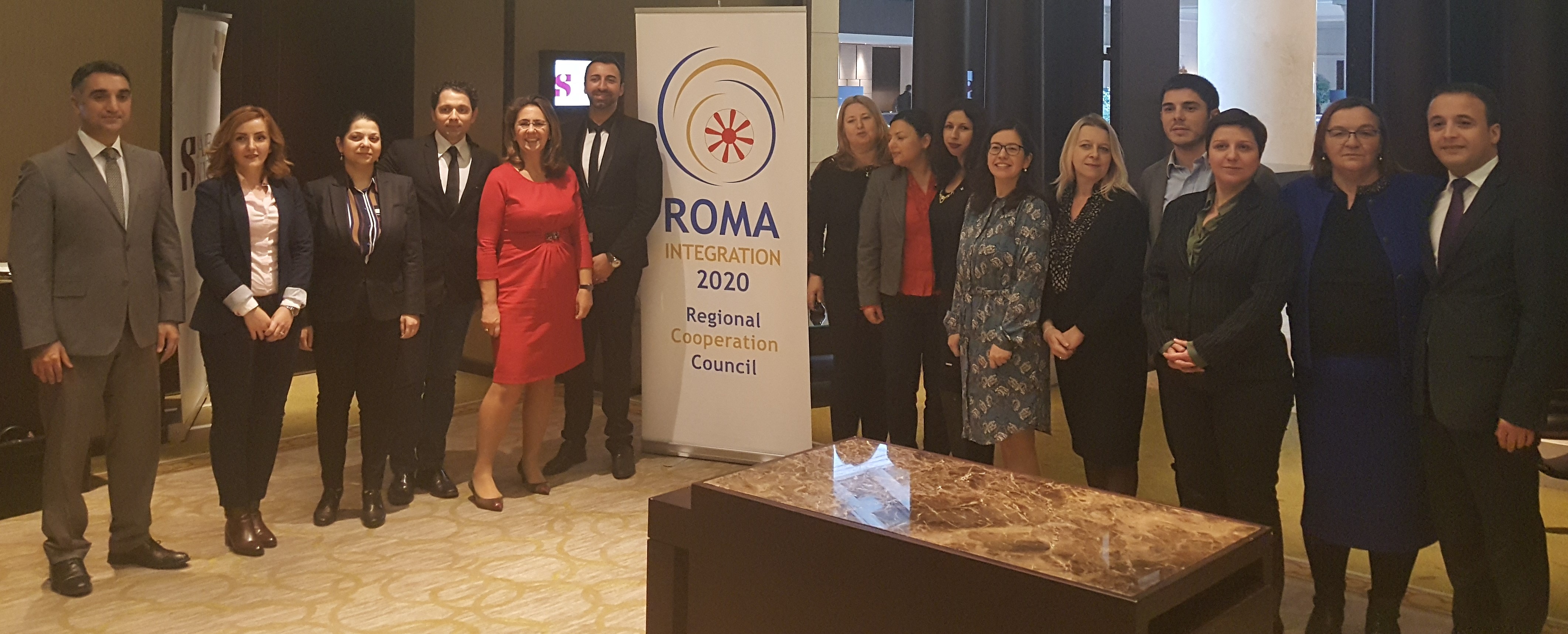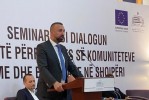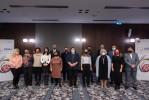First Task Force meeting: Regional standards for reporting on progress, outcomes and budget for Roma integration
- 09 Nov 2016
- News

Roma Integration 2020 Task Force (Photo: RCC/Rada Krstanovic)
The Roma Integration 2020 Action Team organized the first Task Force meeting of the Roma Integration 2020 project. The Task Force, which is composed of the National Roma Contact Points from the participating economies, two civil society representatives, the European Commission DG NEAR, Open Society Foundations and the RCC Secretariat, met in Belgrade on 09. November 2016.
The main topics of discussion were focused on adoption of the Rules of Procedure of the Task Force, presentation and adoption of a template for annual progress reporting, decisions on the topics of the regional workshops to be organized in 2016 and 2017, as well as presentation of the calendar of activities that the Action Team will conduct in 2017.
The meeting was co-chaired by Orhan Usein, Team leader of the Roma Integration 2020 project and Marta Garcia Fidalgo, Advisor on Roma policies in DG NEAR. Opening the first Task Force meeting, Mr Usein briefly recalled the project commitments stated at the Roma Integration 2020 project launch. He said, “Roma Integration 2020 provides direct assistance and technical support to the participating economies for Roma integration, including establishing effective and efficient institutional structure, mirroring the National Platforms from the EU Member States, providing relevant policy advice and capacity building, organizing regional workshop for experience exchange and training, ensuring alignment of the processes with the EU accession requirements, and enabling regional coordination, cooperation and support.”
Ms Marta Garcia FIDALGO, Advisor Coordination of Roma Policy at the EC’s DG NEAR reiterated that the Roma Integration 2020 project’s Task Force mirrors a similar body comprised of the National Roma contact Points from the EU Member States steering the implementation of the EU’s Framework for National Roma Integration Strategies up to 2020. She also reminded that the nomination of the National Roma Contact Points resulted from the commitment of the enlargement region expressed by the adoption of the project by the Regional Cooperation Council’s Board that includes relevant Ministers from the participating economies, and the following letter addressing this issue sent by the EU Commissioner for Neighbourhood Policy & Enlargement Negotiations, Mr Johannes Hahn to the highest officials of the participating economies. Ms Fidalgo said “The nomination of the National Roma contact Points according to the Terms of Reference proposed within the project was needed to establish the Task Force to steer the project, but also to ensure coordination of institutions at national level, follow up of regional discussions and agreements, and ensuring wide public dialogue on Roma integration including full and effective participation of Roma in the whole policy process.”
As its first decision, the Task Force adopted the Rules of Procedure for its composition and operation with the support of the project Action Team. Each participating economy had the opportunity to present the current status of the Strategies and Action Plans on Roma, including the type of support and assistance it received and will be receiving from the Action Team within Roma Integration 2020. The Task Force agreed on the activities within the project by the end of 2016 and during 2017, including a concept note for the upcoming first regional workshop on Monitoring and Reporting to be held in Vienna on 12-13 December 2016.
The most important achievement during the first Task Force meeting of the Roma Integration 2020 is certainly the adoption of the Monitoring and Reporting template. By this, all the economies participating in the Roma Integration 2020 project effectively agreed on common monitoring standard, including qualitative and quantitative overview of the progress and outputs of their Roma integration policies, as well as overview information on the budgetary aspects of those policies. This template is available at the Roma Integration 2020 website and may be used by other interested parties for their own monitoring and reporting. The governments committed and the civil society is encouraged to use this regionally adopted and comparable standard for monitoring.
Monitoring and reporting template presentation
Regional workshop on monitoring and reporting concept note






